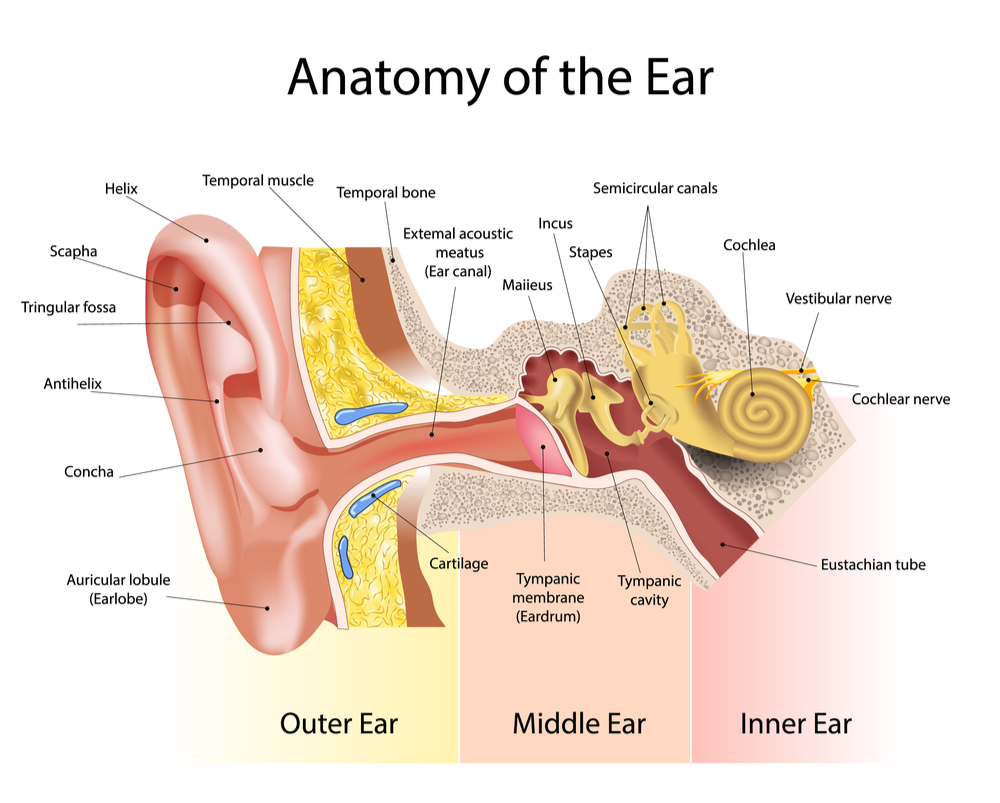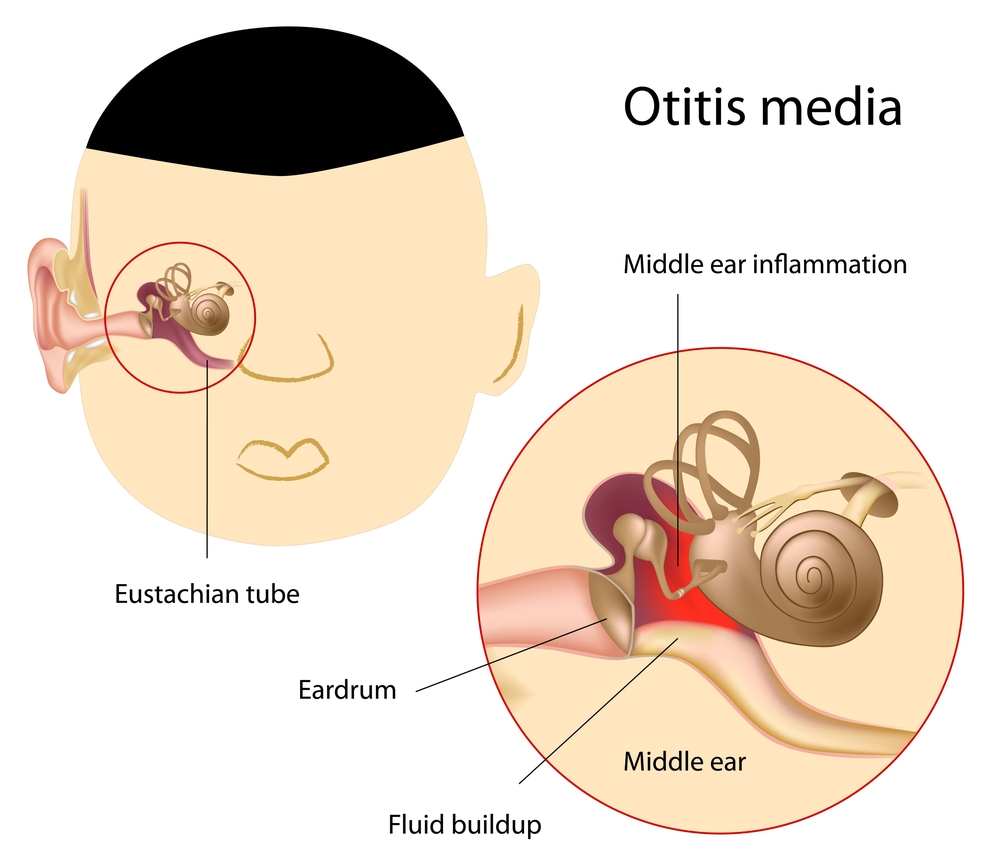Does Otitis Media or Glue Ear Affect Child’s Speech?
According to the American Speech and Hearing Association’s (ASHA’s) website, glue ear is a condition where the middle ear fills with glue-like fluid instead of air. It can occur in one ear or both and doesn’t always follow an infection.
This causes dulled hearing. Imagine being underwater and someone is talking to you – that’s what hearing sounds like for children diagnosed with glue ear.
In most cases, it clears without any treatment. An operation to clear the fluid and to insert ventilation tubes (grommets) may be advised if glue ear persists. This procedure is common and takes less than 30 minutes to complete.
How Does the Ear Work?
The ear has three parts – the outer, middle, and inner ear. Sound waves come into the outer (external) ear and hit the eardrum, causing the eardrum to vibrate. The vibrations pass from the eardrum to the middle-ear bones (ossicles). These bones then transmit the vibrations to the cochlea in the inner ear. The cochlea converts the vibrations to electric signals which travel down the ear nerve to the brain. The brain interprets these signals as sound.

The middle ear is typically filled with air. The middle ear connects to the back of the nose through a tiny passageway called the Eustachian Tube. This tube in children lays flat.
This is why younger children tend to get ear infections much easier than adults because there’s no way to drain the infectious fluid. It just sits there and causes an infection in the ear. As we age, the tube tips, which allows anything that’s in the passage to drain.
What Causes Glue Ear?
The cause is probably due to the Eustachian tube not working properly. The balance of fluid and air in the middle ear may become altered if the Eustachian tube is narrow, blocked, or does not open properly. The tube is typically closed, but does open when we sneeze, cough, or yawn.
By 10-years-of-age, 8 out of 10 children will have had at least one episode of otitis media.
Air in the middle ear may gradually pass into the nearby cells if it is not replaced by air coming up the Eustachian tube. A vacuum may then develop in the middle ear. This may cause fluid to seep into the middle ear from the nearby cells.
Some children develop glue ear after a cough, cold, or ear infection when the ear makes extra mucus. The mucus may build up in the middle ear and not drain well down the Eustachian tube. However, in many cases, glue ear does not begin with an ear infection.
How Common is Glue Ear?
Glue ear is very common during childhood. By 10-years-of-age, 8 out of 10 children will have had at least one episode. It typically occurs between the ages of 2 and 5, is more common in boys than girls, and usually occurs during the winter months.

In addition, it is more common in those children who:
- Are in daycare.
- Have an older brother or sister.
- Live in homes where people smoke.
- Are born with a cleft palate, which can affect how well the eustachian tube works.
- Have Down syndrome
- Have allergic rhinitis – e.g. hay fever.
Speech and Otitis Media
It goes without saying that if your child cannot hear at school, they may not learn as well. Your child may also become frustrated if they can’t follow what is going on. They may feel left out of some activities because they can’t hear the directions. Finally, the teacher may begin to think your child has a behavior issue if they aren’t responding or paying attention.
There has been concern that dulled hearing from glue ear may cause problems with speech and language development. The common belief is that this, in turn, leads to poor school achievement and behavioral problems.
However, research studies that have looked at this issue are reassuring. The studies showed that, on average, children with glue ear had no more chance (or just a little more chance) of having long-term behavioral problems or poor school performance compared with children without glue ear.
However, these studies looked at the overall average picture. There is still a concern that the development of some children with glue ear may be affected – in particular, some children with untreated severe and persistent glue ear.
In short, developmental delay including speech and language is unlikely to occur in most children with otitis media or glue ear. However, if you have any concerns about your child’s development, you should tell a doctor.
 By Stacie Bennett
By Stacie Bennett